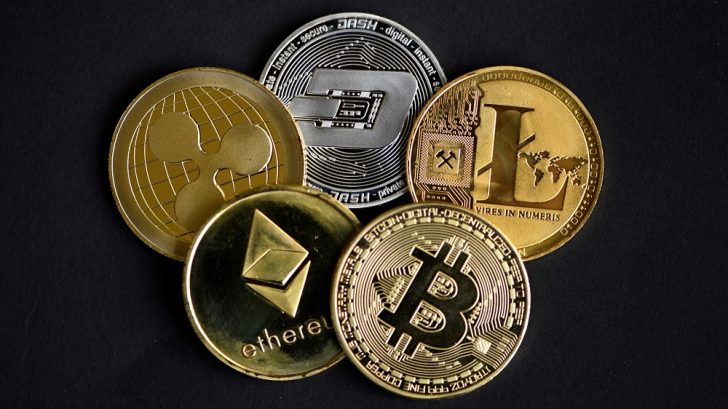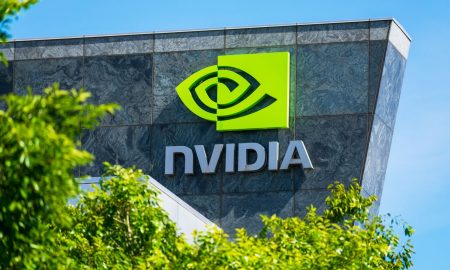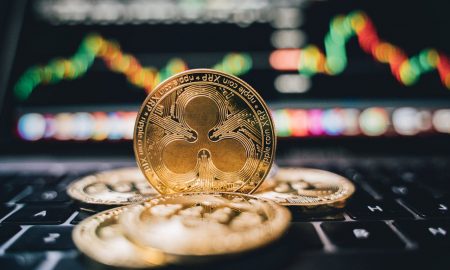
The Rise of Digital Currency

Digital currency, also known as cryptocurrency, has emerged as a revolutionary currency in the digital age. It is a decentralized form of money that utilizes cryptography for secure financial transactions and operates independently of any central bank or government.
What Is Digital Currency?
Digital currency is a form of virtual or electronic money that exists solely in digital or electronic form. Unlike traditional physical currencies such as coins or banknotes, digital currencies are intangible and exist only in electronic records. They are typically based on blockchain technology, a decentralized and distributed ledger that records all transactions across a network of computers.

Ina Fassbender/ AFP | Cryptocurrencies operate on decentralized networks called blockchains
Bitcoin, introduced in 2009, was the first widely recognized and successful digital currency. Since then, numerous other digital currencies, such as Ethereum, Ripple, and Litecoin, have emerged, each with unique features and purposes.
How Does Digital Currency Work?
Digital currencies rely on cryptographic techniques to secure transactions and control the creation of new units. Cryptography ensures the integrity and security of transactions, making them highly resistant to fraud and counterfeiting.
Most digital currencies use a decentralized system called a blockchain. A blockchain is a public ledger that records all transactions chronologically and transparently. Each transaction is grouped into a block, and once verified by network participants, it is added to the chain of previous transactions. This decentralized and transparent nature of the blockchain ensures the integrity and immutability of the digital currency system.
Digital currencies are typically created through a process called mining. Miners use powerful computers to solve complex mathematical problems that validate transactions and add them to the blockchain. Miners are awarded new digital currency units for their computational work. This process also ensures the scarcity and controlled supply of digital currencies.

Karim H. Labadi/ Linkedin | Digital currencies offer the potential for fast and borderless transactions
Impact and Benefits of Digital Currency
Decentralization and Financial Inclusion
Digital currency eliminates the need for intermediaries such as banks or financial institutions. It enables peer-to-peer transactions, allowing individuals to transact directly with each other, even across borders. This decentralized nature promotes financial inclusion, especially for individuals who may not have access to traditional banking services.
Security and Privacy
Digital currencies use advanced cryptographic techniques to ensure the security and privacy of transactions. These techniques make it difficult for transactions to be tampered with or reversed, providing users with high security and control over their funds.
Global Transactions
Digital currencies facilitate seamless and instantaneous transactions across borders. Traditional financial systems often involve complex processes and intermediaries, leading to delays and high transaction fees. Digital currencies eliminate these barriers, making cross-border transactions more efficient and cost-effective.

Getty/ Forbes | Many major companies and institutions have started accepting digital currencies as a form of payment
Lower Transaction Costs
Digital currencies have the potential to reduce transaction costs significantly. Traditional financial systems involve various intermediaries and fees, such as currency conversion and transaction fees. Digital currencies streamline these processes, lowering transaction costs, especially for international transactions.
Potential for Innovation
Digital currencies and the underlying blockchain technology have sparked a wave of innovation. They have given rise to various applications and platforms, such as smart contracts, decentralized finance (DeFi), and non-fungible tokens (NFTs). These innovations can disrupt various industries, including finance, supply chain management, and digital asset ownership.
More in Crowd Funding
-
`
Are House Prices Going Down in Orange County in 2024?
In June 2024, Orange County saw a notable shift in its real estate landscape. This leads many to wonder if house...
August 14, 2024 -
`
What Are Specified Investment Products? SIPs Explained
Navigating the world of investing can be complex, especially when it comes to Specified Investment Products (SIPs). These financial instruments often...
August 7, 2024 -
`
Why Leonardo DiCaprio Never Dated Kate Winslet: The Iconic Duo’s Relationship Update
It has been 25 years since Titanic’s release, a film that has left an indelible mark on the hearts of audiences...
July 29, 2024 -
`
How to Start Your Own Private Bank
Starting your own private bank might sound challenging, but with the right planning and execution, it’s entirely feasible. The benefits of...
July 23, 2024 -
`
Nvidia Stock Now Continues to Drop After Bull Run: What Went Wrong?
After a period of massive growth, Nvidia’s stock is now experiencing a significant drop in value. This California-based software company, known...
July 17, 2024 -
`
Is Kevin O’Leary Conservative? Analyzing His Policies
Kevin O’Leary, the renowned chairman of O’Leary Financial Group, has set the political stage abuzz with his recent announcement. On Wednesday, he...
July 8, 2024 -
`
The Staggering Net Worth of “Twilight” Star Taylor Lautner
Taylor Lautner’s net worth is a topic that often intrigues fans and industry watchers alike. Known for his iconic role in...
July 1, 2024 -
`
Tyson Foods Boycott 2024 – The Role of Bots in the Movement
Have you ever scrolled through social media and seen a hashtag blow up overnight? It happens all the time, but in...
June 25, 2024 -
`
Here’s How Nonprofits Make Money
Donations and Grants The most obvious answer to “how do nonprofits make money” is through donations. Individuals, businesses, and foundations contribute...
June 19, 2024














You must be logged in to post a comment Login